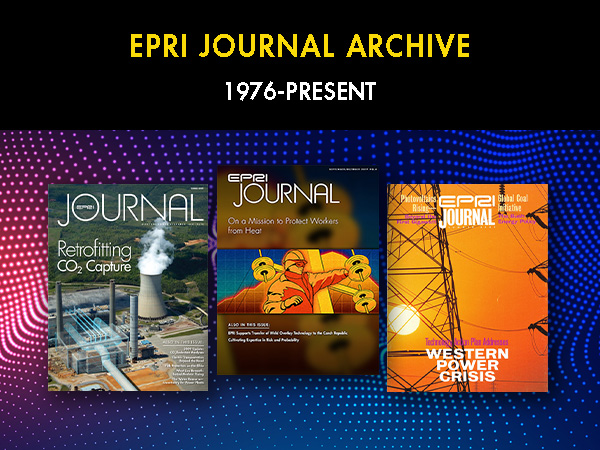Efficient Electrification Empowers Customers to Reduce Emissions, Lower Costs, and Improve Performance
Customers are at the heart of EPRI’s Integrated Energy Network, demanding affordable, clean energy, and choice. With global population expected to increase by more than 50% by 2100—mostly in urban centers—new technologies, policies, and business models are essential to meeting customers’ energy and environmental needs. Efficient electrification is poised to play an important role, facilitated by rapid advances in electric vehicles and other electric technologies, clear technical pathways to cleaner electricity generation, plummeting costs of renewables, and ubiquitous digitalization.
“Electric technologies can provide a wide array of benefits,” said Rob Chapman, vice president of EPRI’s Energy and Environment Sector. “They can improve end-to-end energy efficiency, providing more value for less fuel. For residential and commercial customers, they can lower costs and increase comfort and control. For industry, they can often improve productivity and create a safer, more appealing workplace. And for society and the environment, they can enable significant reductions in CO2 and other air emissions and reduce water use.”
Broad adoption of efficient electrification technologies faces significant challenges, including legislative and regulatory disincentives and consumers’ lack of familiarity with electric technologies. A broader, more concerted research effort is needed to help make the next generation of electric technologies cost-effective in the near term.
As a first step, EPRI is conducting an Efficient Electrification National Assessment in 2017 to improve understanding of the costs, benefits, drivers, and impediments to electrification in the United States, with a report expected in early 2018.
“In addition to this national perspective, we are planning local and regional studies with utility companies and other stakeholders to gain a more detailed understanding of regional nuances and associated electric technologies that can provide near-term economic value,” said Chapman.
EPRI recommends that research and development immediately focus and accelerate work in the following areas to support efficient electrification and the use of cleaner energy:
- Explore policies and technical options to achieve cost-effective efficiency gains. Traditional energy efficiency efforts, which focus on improving the efficiency of equipment such as heat pumps or lighting, remain essential and should accelerate. Expand efficiency R&D to include options that can reduce energy use by switching fuels or improving processes. For example, airlines improved efficiency in recent decades by flying more fuel-efficient planes. They made more dramatic efficiency improvements by creating pricing structures to fill seats.
- Evaluate energy and environmental policies to encourage electrification. Many existing rules penalize utilities for increasing carbon emissions by electrifying vehicle fleets, even though there is a net decrease in emissions overall as a result of reduced gasoline consumption. Policymakers and regulators can seek new cross-sector approaches to achieve their goals and create incentives necessary to spur investment in infrastructure such as electric vehicle charging.
- Develop and demonstrate advanced, clean energy end-use technologies. Sustained R&D is vital to develop more technologies that are powered by clean energy and that reduce emissions, water use, and other adverse environmental impacts. These include electric technologies and other advanced clean technologies such as hydrogen fuel cells.
The Three Pillars of the Integrated Energy Network
The Integrated Energy Network provides EPRI’s perspective on the future of energy. Research needs are identified for each of three supporting pillars:
- Using affordable, cleaner energy through efficiency and electrification: focuses on the opportunities and challenges—both technical and institutional—involved with scaling the use of cleaner energy sources.
- Producing cleaner energy: details the potential of cleaner electric generation technologies—renewable energy, nuclear power, and fossil-fueled generation with carbon capture—along with promising non-electric technologies.
- Integrating energy resources: examines how new technologies and markets must be tapped to better integrate the electricity, gas, water, and transportation systems.
EPRI invites you to share your ideas and approaches for addressing each of the three pillars.


